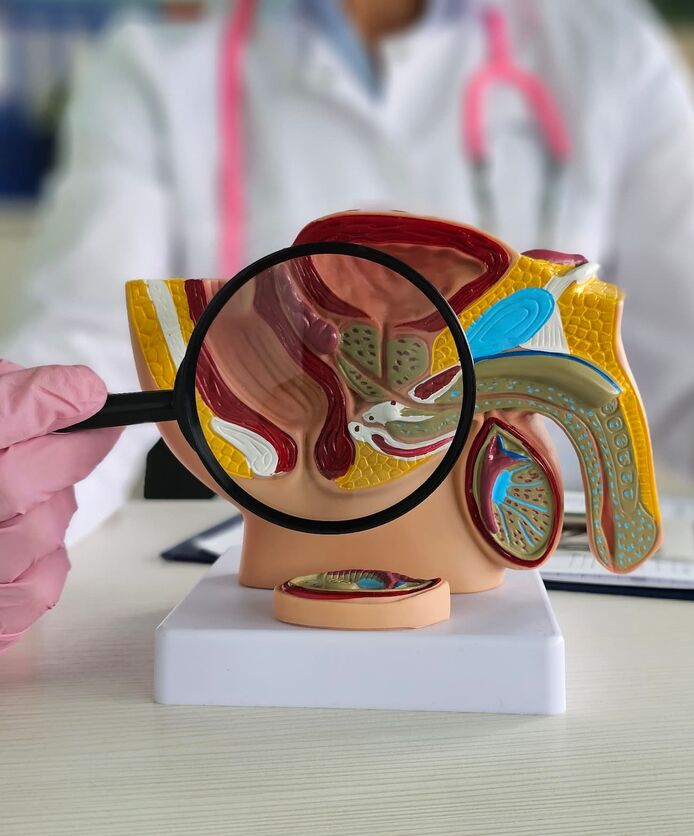What are the symptoms of flu?

When you’re feeling under the weather, it can be tempting to simply swaddle yourself in blankets and wait out the illness. Sometimes, rest like this can be exactly what you need - but that’s not always the case.
Flu is a viral condition that can get better on its own in many cases. However, some people can fall seriously ill and need to be hospitalised. Even if you’re not badly affected, flu medications can help you to feel better quicker so you can get back to your day-to-day activities more easily.
What are flu symptoms?
A relatively common condition, flu is something most of us will get at one point or another in our lives. It’s an illness that can seem to arrive very quickly, which is one of the factors which differentiates flu from a simple cold. Flu is also typically more severe, making it harder for you to go about your day as normal.
The symptoms of flu in adults include:
- A sudden fever or high temperature
- Physical fatigue and exhaustion
- Aches and pains
- Throat pain, possibly accompanied by a dry cough
- Headaches
- Chills
- Sneezing
- A runny nose or congestion
- Loss of appetite
- Nausea and vomiting
- Abdominal pain and/or diarrhoea
- Difficulty sleeping.
Children will experience similar symptoms to these, but they also may be lethargic, appearing less active, and might have earache or ear pain.
Typically, flu symptoms appear around one to three days after the point of infection - so you could catch flu at a mid-week event and not start to feel ill until the weekend. In the majority of cases, you’ll feel better roughly a week later, although some symptoms such as fatigue and coughs may linger for a while longer.
It’s important to realise that, although flu is more common in the winter months, you can actually get it all year round. So, if you’re experiencing these symptoms in the summer, don’t rule out flu as a potential cause.
While flu isn’t usually dangerous, it can affect vulnerable individuals more severely. If your symptoms haven’t improved within a week or one of the following applies, you should call 111 or seek an urgent GP appointment:
- You’re 65 or older
- You’re pregnant
- You have a weakened immune system
- You have a long-term medical condition
- You’re otherwise concerned about your baby or child’s symptoms.
You should call 999 if you:
- Start coughing up blood
- Have difficulty breathing
- Experience sudden chest pain.
If none of these apply and you just want medical advice on the right kind of medicine to help you feel better quicker, you can access flu medications from a pharmacy. These include medications designed to attack the flu virus, such as Tamiflu, as well as those designed to treat specific symptoms rather than the condition itself. An example of this is Nytol, a medication which helps to combat temporary sleeplessness so you can get better rest and feel more refreshed in the morning.
Is flu contagious?
Flu is known to be a very infectious disease - it spreads between people easily. This is why it’s so common for students to fall ill during the first few weeks of term at school or university - the time when they come into relatively close contact with a large group of people after a summer off.
Although the phenomenon is known as freshers’ flu in reference to university students, this can affect anyone and may happen at different times of the year depending on your circumstances. For example, if you work in retail, you may be more at risk of contracting flu during holidays or events which cause a high influx of customers.
If you have the flu, it’s important to know that you are most contagious within the first five days. However, you can still pass it on after this time, so it’s important to keep up with good hygiene practices to help protect those around you. This means:
- Using the ‘Catch it, Bin it, Kill it’ approach to sneezes and coughs
- Washing your hands frequently with warm water and soap
- Cleaning regularly touched surfaces such as door handles, keyboards and phones often
- Staying at home and avoiding contact with people if you have a fever or don’t feel well enough to carry on as normal.
Another way to reduce how contagious you are is to stay up to date with your flu vaccinations. These work by introducing your body to the virus so that you’re better prepared when infection levels rise. You’re likely to experience milder symptoms as well as being less infectious - a win win situation.
Having the flu is never fun, but if you spot the signs early, it can make it easier to get the right treatments to ease your symptoms and feel better sooner. Even better, why not get stocked up with helpful treatments ahead of time so that you’re fully prepared the next time you feel the flu coming on?

Which contraceptive pill is best?

How to get rid of flu

What causes erectile dysfunction?

How to delay your period

How to ease period cramps

